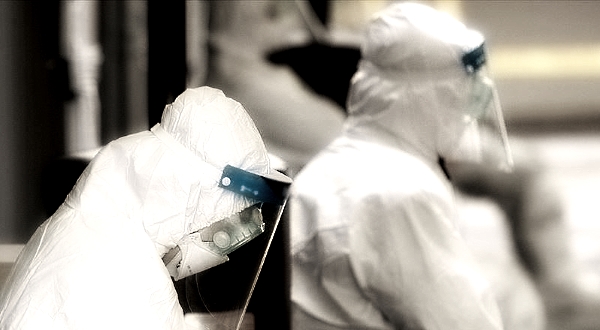Sin Chew Daily
Despite the fact Muhyiddin Yassin has stepped down as prime minister, there is no let-up in the intensity of the spread of the coronavirus in this country.
The daily new infection numbers have hovered above 10,000 cases for 45 days in a row now, with positivity rate as high as 14% and mortality rate upward of 1%, more than 200,000 active cases and 1,500 severely ill patients. The percentage of infected individuals has reached 4.9% of the country’s population.
All these numbers point to the fact that we are far from putting the pandemic under complete control.
Of course, due to the high vaccination rate, the situation has seen some encouraging improvements in Klang Valley, and this is a good sign that we are heading in the right direction.
On a per capita basis, the various indicators have highlighted the reality that we are among the most severely hit countries in the entire world. As such, the new prime minister has a very heavy responsibility to shoulder.
We cannot expect the new PM to bring the new infection numbers down to zero soon. We can only count on vaccination and self-awareness on the part of the rakyat to effectively contain the virus. Meanwhile, we will have to learn to live with the virus and be mentally prepared for annual booster jabs.
We do not need irresponsible people to exaggerate the numbers to create more panic among the people, but we must also be honest to ourselves and justly report the actual real-time situation of the pandemic.
We don’t want politicians to tell us that “Ismail Sabri is an expert in fighting the virus” or “the Muhyiddin administration has effectively controlled the pandemic”, or “Malaysia has the world’s highest vaccination efficiency”.
We hope that during such trying times, politicians on both sides of the divide will come together to battle the virus in unity instead of painting a rosy picture of the country as if nothing serious has actually happened.
The urgent task awaiting the newly appointed prime minister is to lead his new cabinet and work in collaboration with the opposition to thoroughly review the anti-virus measures implemented since March 18 last year, and why we have failed to contain the virus despite the many efforts put in.
The new government should more systematically apply the “management tools” to analyze and improve the pandemic situation, such as HACCP (Hazard Analysis and Critical Control Point).

Let’s take a look at the various factors in the fluctuation of the outbreak over the past one year and a half:
Virus: Do we need to adopt different strategies against the different viruses and their variants?
Transmission points: Import of cases from overseas, community, workplaces, houses of worship, festive celebrations, schools, restaurants, public venues (malls, night markets, wet markets, etc.), high risk groups, migrant workers, unvaccinated individuals… We should analyze in details all the times and places of coronavirus outbreaks during the past one year, and use the data as a reference for our future anti-virus strategies, whether to lift the bans or tighten the screws.
Medium of virus spread: asymptomatic cases, migrant workers, high risk groups, COVID-positive individuals, active cases, life cycle of the virus and transmission routes (air, water, objects).
Preventive measures: SOPs, full or partial lockdowns, mass screening, medical resources.
Mass vaccination: Vaccination rate, vaccine effectiveness (Pfizer, Moderna, Sinovac, AZ, etc.)
Global medical reports: The authorities must have access to the latest international medical and epidemiological journals, experiences (success or failure) of other countries as reference.
Assessment benchmarks (against global data): Daily new infection numbers, infection rate per million population, positivity rate, percentage of severe cases, mortality rate, number of active cases, R0 value and new infection clusters.
It is hoped that with opposition lawmakers joining the national recovery council and the special committee to address the COVID-19 crisis, we can identify the “critical control points” to successfully and systematically contain the virus and revive the national economy.
ADVERTISEMENT
ADVERTISEMENT


































